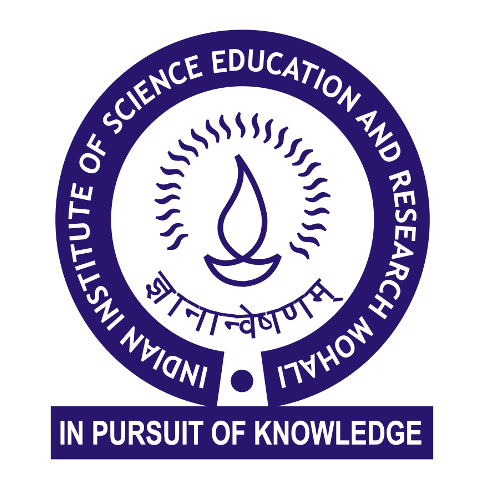Events Calendar
Does non-farm income always lead to intensification of polluting agricultural inputs? New Evidence from India
Thursday 13 November 2025, 05:00pm
Dr. Sabuj Kumar, Associate Professor, Indian Institute of Technology (IIT) Madras
Location : LH 1, LHC, IISER Mohali
The farm sector contributes almost 10-12% to greenhouse gas emissions globally. Furthermore, the residuals of farm inputs-based chemicals have been reported in the soil, air, and water, thereby affecting environmental quality. This paper explores whether farmers’ income from rural-non-farm sector (RNFS) lead to intensification of polluting farm inputs like, chemical fertilizer, pesticide, weedicide, or towards green organic inputs. We construct a theoretical model to capture farmers’ preference for environment at higher level of income and then estimate the sample selection model by Vella-Verbeek (1999) that accounts for both unobserved heterogeneity across the farmers and the reverse causality between farm input usage and RNFS income. The estimation relies on the novel Village Dynamics of South Asia (VDSA) dataset, on farmers in Semi-arid Tropics and Eastern regions of India, covering a time span of five years (2010-14). The econometric evidence of our study indicates that the intensification of farm inputs, which have known links to environmental quality may increase as well as decrease due to farmers’ participation in the RNFS. Our empirical results show that fertilizer intensity increases with a rise in RNFS income, but falls beyond a certain threshold level of RNFS income. Impact of RNFS income is found to have a negative impact on two other polluting inputs, pesticide and weedicide, per hectare. On the other hand, the use of green organic inputs per unit of cultivated land is found to increase with the rise in RNFS income. So, overall, our results suggest that extra income from the non-farm sector may motivate the farmers to use more of environment friendly green inputs and less of polluting inputs.
About the Speaker: Dr. Sabuj Kumar Mandal is currently working as an Associate Professor of economics in the Department of Humanities and Social Sciences, Indian Institute of Technology Madras (IITM), Chennai. He completed his B.Sc (Economics) from the Scottish Church College, Kolkata, and M.Sc (Economics) from the University of Calcutta with a specialisation in Econometrics and Environmental and Resource Economics. He completed his doctoral degree in economics from the Institute for Social and Economic Change, Bangalore. His teaching and research interests include Applied Econometrics, Energy and Environmental Economics (efficiency analysis), Oil price shocks and stock market behaviour, Climate Change and Migration, Corporate Social Responsibility and Firm Performance, and behavioural and experimental economics. He has several national and international publications to his credit, including Energy Policy, World Development, Journal of Development Studies, Journal of Policy Modelling, Water Resources and Economics, Energy Efficiency, and Scientific Reports. He was awarded the Young Economist Award 2015 by the Indian Econometric Society for his contribution to quantitative economics. He was awarded the Fulbright Nehru Academic and Professional Excellence Award 2020-21 (research category) and was affiliated with Arizona State University for collaborative research.
About the Speaker: Dr. Sabuj Kumar Mandal is currently working as an Associate Professor of economics in the Department of Humanities and Social Sciences, Indian Institute of Technology Madras (IITM), Chennai. He completed his B.Sc (Economics) from the Scottish Church College, Kolkata, and M.Sc (Economics) from the University of Calcutta with a specialisation in Econometrics and Environmental and Resource Economics. He completed his doctoral degree in economics from the Institute for Social and Economic Change, Bangalore. His teaching and research interests include Applied Econometrics, Energy and Environmental Economics (efficiency analysis), Oil price shocks and stock market behaviour, Climate Change and Migration, Corporate Social Responsibility and Firm Performance, and behavioural and experimental economics. He has several national and international publications to his credit, including Energy Policy, World Development, Journal of Development Studies, Journal of Policy Modelling, Water Resources and Economics, Energy Efficiency, and Scientific Reports. He was awarded the Young Economist Award 2015 by the Indian Econometric Society for his contribution to quantitative economics. He was awarded the Fulbright Nehru Academic and Professional Excellence Award 2020-21 (research category) and was affiliated with Arizona State University for collaborative research.
website policy
Connect with us
IISER Mohali, Knowledge city, Sector 81, SAS Nagar, Manauli PO 140306
Telefax : 2240266, 2240124
-
+91 - 172 - 2240266
- +91 - 172 - 2240266


